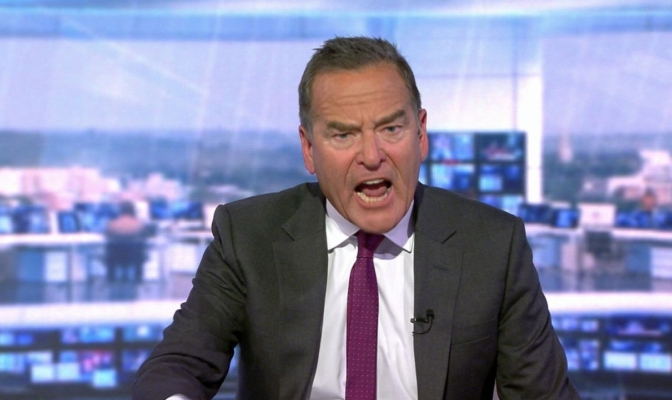City AM has reported that Sky News' Business Live is being dropped from our schedules. It's sad news, but a sign of the times.
City AM is reporting that Sky News’s flagship Business Live (BL) programme will be disappearing from the airwaves. The programme has been on air for almost 20 years with many interviewees ‘surviving’ a grilling with Jeff Randall at The Gherkin on St Mary’s Axe followed by the affable and brilliant Ian King at CNBC studios.
The programme has changed format a few times – Randall’s edition originally ran from 7pm until 7.30pm (which does feel like an ungodly hour these days, especially as it was always in-person) to a more friendly mid-morning slot before more recently becoming a twice daily half hour slot, with Darren McCaffrey taking over presenting duties. TV folk will tell you that a change in schedule is generally not a good thing, but it did somewhat feel like the storm clouds were gathering as the programme moved away from its familiar City studio alongside wider strategic changes to Sky News’s broader news offering.
As I’ve reflected recently, following The Sun’s decision to stop publishing its Sun City column, it’s sad, yet a time of change for business journalism. BL was a staple for many companies looking to put forward spokespeople to comment upon markets, economic stories, regulation and company news. Yes, at times, for some organisations, it felt like their moment in the sun, but I recall important contributions from clients on issues like Brexit, Covid and tariffs.
While I recall speaking to many producers of BL or Ian King Live (IKL as we called it) at Ian’s chagrin to being ‘bumped’ for dry press conferences and humdrum breaking news from Westminster, seemingly, it does appear that business reporting is perhaps seen as a bit of a luxury to schedulers. Competitors like GB News alongside radio stations like LBC (which you can watch on YouTube) mean that news and ‘scheduled TV’ as we know it is evolving. For Sky and perhaps to a lesser extent, the BBC, news is evermore driven by opinion, issues and what gets said on social media. Why surrender an hour’s worth of business reporting when you could do something different?
The landscape is also different with more podcasts and Substacks available – long gone are the days of the BBC’s Working Lunch. News is a very much a digital beast these days and you can see the size of the audience at an instant.
It has always happened to some extent, but there is a shift allowing general news to pick up financial stories like the ‘cost of living’, ‘mini-budget’ or NI hikes and the effect on small businesses – ‘news you can use’ as they say. If the story is strong enough, then why not bring into the main headlines? That’s not necessarily a bad thing and certainly, from a PR perspective, it does mean that we have to ask how we can make stories more relatable and interesting. There is clearly an opportunity to be had.
My worry would be that some areas of the economy perhaps do not lend themselves well to consumer news. Yes, we will always see stories on house prices and inflation, but how easy is it to discuss weak productivity, LDIs, the bond markets, Thames Water, digital assets or the rise of private credit? We need these programmes and excellent journalists to translate these stories and issues, especially if politicians don’t have a good understanding of the fundamentals of how businesses and how the economy works.
I always loved watching Jeff Stelling on Soccer Saturday growing up, but as more people had news alerts on their phone or through Fantasy Premier League, despite’s Jeff’s brilliance (unbelievable Jeff!), it wasn’t the same and has become less relevant. Things do move on and as I always argue, there are always new opportunities. However, this is the economy, not the goals around the grounds. It will be sorely missed.



